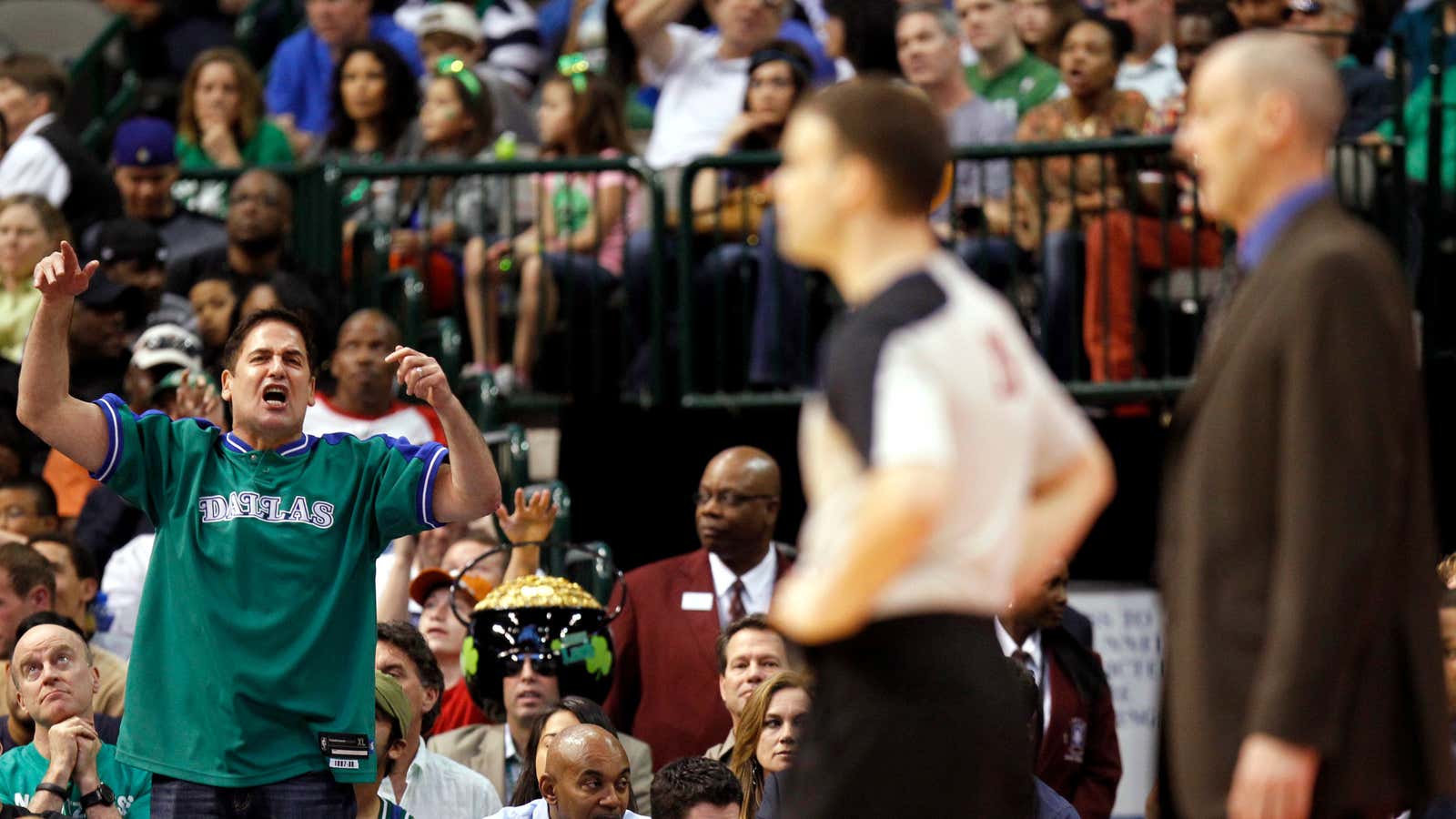It’s been a difficult week for Netflix. First, a key competitor announced plans for a bona fide streaming product of its own. Next, an earnings report turned up troubling indicators for Netflix subscriber growth. And then, yesterday, all of the company’s share price gains for 2014 were wiped out in a single trading session.
It’s enough to prompt the Netflix believers to rush to the company’s defense. Among them, Mark Cuban, the billionaire entrepreneur who made a fortune selling internet radio service Broadcast.com to Yahoo, and now owns the Dallas Mavericks NBA team.
Stop press! Investor buys shares in company, thinks they could be a takeover target! Yes, this is a classic case of a rich guy talking his own book. It hasn’t done much for the stock price today, but Cuban’s views are worth mentioning because a) takeover theories have swirled around Netflix for years and b) it’s Mark Cuban. There is no suggestion here that anything is actually about to happen, although it’s worth remembering the company removed a “poison pill” defense mechanism in December, making it easier, in theory, for a takeover to happen.
Plenty of companies have been seen as having a strategic interest in the business over the years. Among them is Yahoo, which has a lot more cash on its books now after the sale of its stake in Alibaba (although it would need to divest even more to be able to afford Netflix) and is making a huge push into video. Then there’s Apple, which just completed the biggest M&A deal in its history and doesn’t seem to have progressed with its own TV/video plans at all. And don’t forget Microsoft, although the software giant seems to be less focused on consumers than in the past.
Of course all of this is just wild speculation. Perhaps a better reason to have faith in Netflix’s long-term potential is articulated by BTIG’s Rich Greenfield, one of Netflix’s most bullish supporters on Wall Street (he fearlessly upgraded his outlook on the company just before the disastrous earnings report). Greenfield is sticking with (registration required) his favorable outlook because he has confidence the company is going to get its hands on more, high-quality content (self-produced or otherwise); because he thinks Netflix has a “meaningful lead” in technology and infrastructure over other services; and because he believes the company’s low-cost, ad-free, watch-anywhere model has global appeal.
It’s difficult to argue with any of that. Yet whether these qualities would be enough to offset the other uncertainties facing Netflix’s business and persuade a cash-rich tech titan to open its wallet and buy the company, nobody can be sure.
